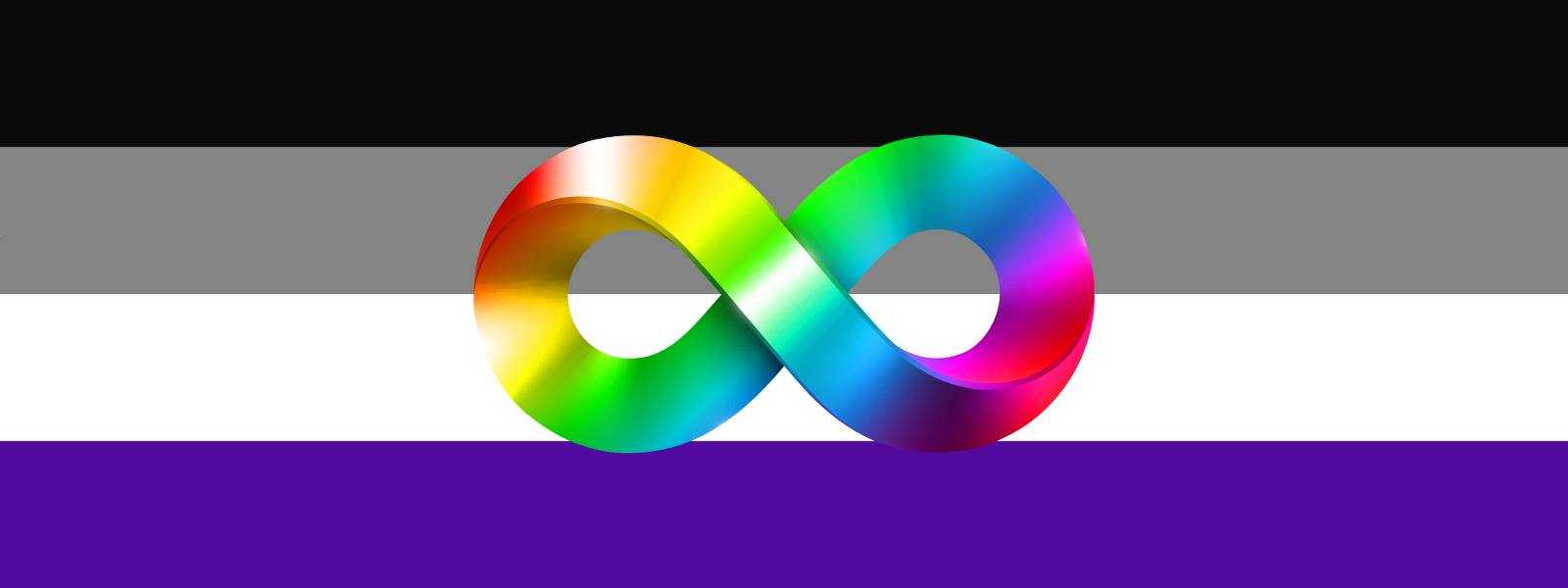A guest blog by Kerry Chin, a member of Aspect's LGBTQIA+ advisory commitee.
Aspect wishes Australian Asexuals a happy Ace Week!
Ace Week is an annual event observed during the last full week in October. Founded in 2010 as Asexual Awareness Week, it is an international campaign dedicated to raising awareness and expanding education of asexuality. In particular, the Wednesday in Ace Week is Disabled Ace Day, a day to celebrate disabled ace people and draw attention to the challenges and discriminations we face within the broader ace community.
The 'ace' spectrum
The asexual (or “ace”) spectrum includes a range of different identities including asexuality (experiencing little to no sexual attraction), demisexuality (only experiencing sexual attraction after developing an emotional bond), and grey asexuality (being in the grey area between asexual and allosexual). There are also various microlabels which describe highly specific subsets of ace experiences. It should be noted that ace identities are defined around sexual attraction, not behaviour or sexual history, and as with other sexual orientations, asexuality is not a choice.
Asexuality and autism
Autistic people are more likely to be LGBTQIA+ than the general population, and this includes being asexual. As with other aspects of life, individual experiences vary greatly amongst asexual Autistic people. Analogous to some Autistic people’s experience of receiving an autism diagnosis (especially as adults), many asexual people are relieved when they discover the concept of asexuality. Many asexual people feel alienated from mainstream society due to their lack of sexual attraction. Having a word to describe their experience allows them to find community and affirms that they are not alone in their lack of sexual attraction.
On the other hand, there are also asexual people who are uncomfortable with their asexuality for a variety of reasons. Some asexual people feel “broken” because of their asexuality. This is especially an issue for asexual people who have experienced sexual trauma, as they may question whether they are truly asexual, or just averse to sex as a result of their negative experiences. A specific issue for asexual people who are seeking professional help with mental health issues is that many professionals are also unfamiliar with the concept of asexuality, thus potentially causing the asexual person further distress by dismissing their identity.

Some asexual people are interested in romantic relationships, and are therefore worried that they will be alone forever due to their asexuality, as finding partners who are compatible and accepting can be particularly difficult for asexual people. For asexual people who are already in a relationship when arriving at the conclusion that they are asexual, coming out to their partner is another challenge, as it is common for people who are not familiar with asexuality to misunderstand a partner’s asexuality as a personal attack (which it is not). Other asexual people are interested in queerplatonic relationships, which are outside of the dichotomy of friendship and romantic relationships. Similar to asexual people who are seeking conventional romantic relationships, people who are seeking queerplatonic relationships may have a limited pool of prospective partners, with the added challenge of having their relationships dismissed or misunderstood by people who are not already familiar with the concept.
A lack of understanding in the general public
As asexuality is not very well-known in general, there are people who dismiss its existence due to a lack of understanding. Such people may try to justify their dismissal of asexuality based on various actual or perceived traits of the asexual person, including autism and other disabilities. Unfortunately, this has led to a phenomenon of “the unassailable asexual” where people within the asexual community attempt to distance themselves from disability in order to refute these arguments, thus excluding people who are both disabled and asexual.
Conversely, as Autistic people (and more broadly, disabled people) are often desexualised and infantilised by mainstream society, it is part of Autistic/disabled activism to assert the right to be sexual. However, there is an issue where some activists therefore inadvertently erase asexual people by claiming that all Autistic/disabled people are sexual beings. It should be noted that actively identifying as asexual is not the same as being desexualised, and asexual people should be afforded the same agency to claim their sexual identity as with any other sexual orientation.
Asexual does not mean being adverse to touch
While some Autistic people do not enjoy physical touch due to sensory sensitivities, it should be noted that asexuality (in Autistic people or otherwise) is not the same as being averse to touch. Asexual people who are not interested in sexual activity may still desire non-sexual touch. In mainstream Australian culture, a lot of physical touch is coded as sexual or romantic, which leaves little room for people who are seeking physical contact outside of conventional sexual and romantic relationships.
If you think you might be asexual, find your local community group through this selection of Australian Ace links.
A guest blog by Kerry Chin (October 2022)



